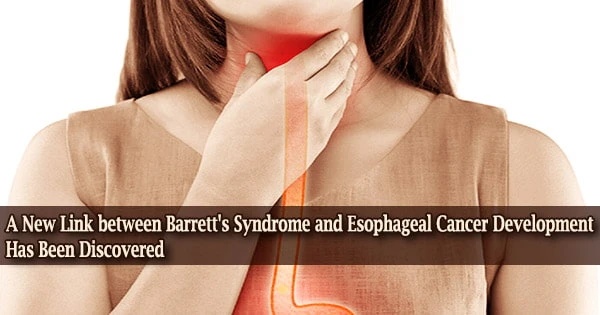Only 4,000 of the approximately 20,000 Americans who were diagnosed with esophageal cancer this year are projected to be alive in 2027.
Researchers have long sought to understand the causes of the disease in response to such bleak statistics, but they have made few advances to date.
Esophageal adenocarcinomas are an aggressive type of esophageal cancer that has gradually increased in prevalence, even in younger people, according to a team of researchers from the Case Western Reserve University School of Medicine and Case Comprehensive Cancer Center. They are believed to be caused by a cell signaling pathway.
“The incidence of esophageal cancers has increased severalfold over the last few decades, making it the most common esophageal malignancy in the U.S.,” said Kishore Guda, associate professor at the School of Medicine and member of the Case Comprehensive Cancer Center.
“Like gastric and pancreatic cancers, these are highly aggressive malignancies that can be resistant to treatment, with dismal survival rates and with lack of effective targeted therapies.”
The “Ephrin B2 (EphB2) Tyrosine kinase pathway,” a crucial molecular signal that is triggered during the growth of esophageal adenocarcinomas, is described in new research that was just published this month in the journal Gastroenterology.
The results further demonstrate that the EphB2 pathway controls the behavior of healthy esophageal cells as well as the proliferation of cancer cells.
“From a molecular standpoint, EphB2 induces the levels of a well-recognized pro-cancer gene, called c-MYC. One mechanism by which EphB2 seems to affect MYC levels is through its direct interaction with a protein known as MYCBP2, which is a suppressor of MYC activity,” Guda said. “This is the first discovery to our knowledge that demonstrates EphB2 regulation of MYC and its physical interaction with MYCBP2.”
The incidence of esophageal cancers has increased severalfold over the last few decades, making it the most common esophageal malignancy in the U.S. Like gastric and pancreatic cancers, these are highly aggressive malignancies that can be resistant to treatment, with dismal survival rates, and with lack of effective targeted therapies.
Kishore Guda
The researchers discovered that EphB2 signaling is hyper-activated in virtually all cases of esophageal adenocarcinomas as well as a disorder termed Barrett’s esophagus by studying normal, pre-cancer, and malignant biopsy samples with RNA sequencing.
Barrett’s esophagus develops when acid reflux damages the lining of the esophagus, causing the esophageal cells to be replaced by intestinal-type cells. The National Institutes of Health (NIH) claim that this disease raises the risk of acquiring esophageal cancer.
According to the researchers, inhibiting the EphB2 pathway’s activity in cancer could be a useful therapeutic approach for treating certain tumors.
“Our immediate goal is to explore and develop EphB2 chemical inhibitors and/or EphB2-targeting immune-cell based strategies, and to test their efficacy in preclinical esophageal as well as gastric cancer models, followed by transitioning to human trials,” said Guda.





